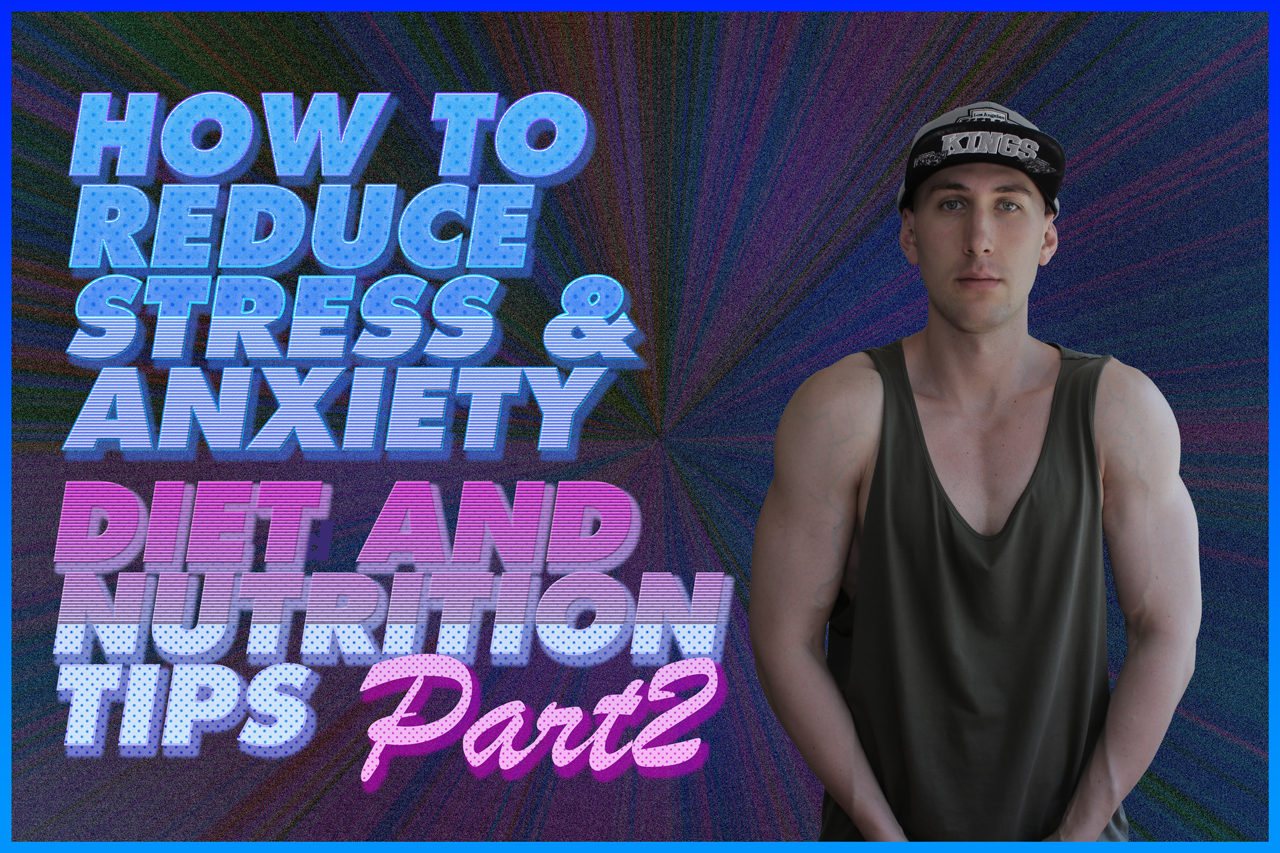In PT1 of HTRSAA I covered some important habit and lifestyle adjustments you can do in order to improve those conditions.
In this part I will talk about how the foods you consume can either improve or worsen your stress and anxiety. Not once you probably heard the quote food is medicine and your diet can be one of the most powerful tools you can utilize to heal yourself from those conditions.
#1 Start following healthy anti inflammatory diet
More and more scientific studies suggest that there is a huge correlation between the inflammation and brain health. Same studies prove that brain inflammation is the reason for many mental illnesses including not only mood or behavioral disorders such psychological stress, anxiety and depression, but also autism, schizophrenia, dementia and others.
#2 Stay away from toxic foods
By itself a rich in good quality foods keto and paleo diets are both anti inflammatory, but surprisingly (or maybe not that much for some of us) there are some pure fat/ketogenic productst that can also trigger inflammation. When trying to reduce inflammation, one thing that plays key role and that is: Minimizing toxicity. In other words avoidance of toxic foods and products. In order to bring some more clarity, I will give you a list of things you should stay away from by any means:
·Sugar (Specially Fructose)
·Gluten
·Sunflower and safflower oils
·Cotton seed and corn oils
·High fructose corn syrup
·Soy
·GMO’s
·Processed meats
·Margarin
·Dairy excluding grass fed butter
·Artificial Sweeteners
·Refined flours
·Junk foods and Alcohol (Those include all kinds pastas, breads, pizzas and other grains)
·All kinds of chemicals, stabilizers, preservatives and other unknown toxins you have difficulties to read the names of
My suggestion here is to take your time and carefully read the labels. Very often the simple check of the list with ingredients is not enough. The ugly truth is that the food companies do their best in order to deceive us. So if there is something on the label you have difficulties to read the name of, I suggest google it first. Learn about all of the things it contains by itself and than decide if those things belong to your meals. I guarantee you won’t regret.
Probably the best thing is investing a bit more money and mostly sticking to products that have at least one organic certification. As long as for the vegetables stick with the locally produced preferably organic ones. Even though it may sound too simple and easy, you really can’t go wrong by following those 2 tips. When preparing your food avoid frying and cook with plenty of water. Use moderate temperatures and don’t overheat the fats.
Remember: the consumption of toxins not only promotes inflammation, it also damages the gut flora. A healthy gut flora has the balance of around 85% good bacteria and 15% bad bacteria.
#3 Eat more Neuroprotective healthy fats
Stick to whole foods like products high in polyunsaturated Omega-3s and monounsaturated fats Also avoid Omega 6s and stay away from trans fats by any means. Omega-3s and Omega-6s are completely different. While the 1st have anti-inflammatory properties, the 2nd are pro-inflammatory.
Typically Meats and fishes are great option, but there is one problem.
That is the fact that most of the meats and fishes available in the super markets is that they are fed with things like corn, soy and other grains. Because of that their content of Omega-3s is drastically reduced and the polyunsaturated fats in them are mostly Omega-6s.
The 2 main types Omega-3s are EPA (Eicosapentaenoic acid) and DHA (Docosahexaenoic acid).
While the EPA is mostly structural component for the brain, DHA is brain’s main anti-inflammatory Omega-3 fatty acid.
Both of them are largely found in different types of sea food, and specially in some kinds of fatty fishes. Countless number of studies prove that low levels EPA are strongly associated with the development of large variety of mental health issues such as high levels of stress, depression, dyslexia, heart bone and joint problems and even neurodegenerative diseases such as MS.
In order to grow and develop their brains, central nervous system and retina children require adequate amounts of DHA. Because of that women have to get enough DHA specially when becoming pregnant and also during breastfeeding.
- Bellow is a list of products that have the types of fat you want·Organic, Grass fed and Pastured meats (Beef, pork, Chicken or turkey)
·Grass fed butter and ghee
·Wild caught fishes
·Avocados
·Cold pressed organic olive oil
·Whole free range eggs
·If you need additional amounts you can supplement with fish oil and Omega-3 soft gels.
#4 Rethink your coffee and caffein intake
No, I do not encourage you to stop drinking coffee but rather pay attention to the types of beans and methods of brewing you use. I also recommend you to time your caffein intake carefully . For many people drinking coffee later during the day means problems falling a sleep at night. If you are one of those people it would be great idea to limit your caffein intake after certain hours of the day.
If you struggle with high levels of stress or you’re prone to anxiety you also want to avoid strong espresso shots and stick to the more gentle drinks like americano and others. Also if you find it affects you negatively don’t eat chocolate prior bed time.
Stay away from mycotoxins contaminated foods and specially coffee. Accordingly to many researches most of the coffees in the supermarkets have been positively tested for mycotoxins.
Mycotoxins are produced by microfungi and their ingestion can contributes to many diseases in humans. There are 3 most common ways people get exposed to mycotoxins:
·Drinking mold coffee
·Consuming mycotoxin containing foods
·Breathing near water- damaged buildings or other moldy environments.
Even though not a lot of people are not paying attention to it, it has been proven that mycotoxins have very negative impact on many of systems in of the human body. One of them is the neurological. The ingestion of mycotoxins contribute to many mental health issues such as:
·Anxiety
·Depression
·Mood swings
·Irritability
·Seizures
·Poor memory
·Aggression
·Brain fog
When consumed with other toxins mycotoxins have synergistic effects and they can contribute to different breathing problems including asthma. If a coffee increases your stress and anxiety or if it gives you jitters or even a panic a attacks, than most likely there are mycotoxins in that coffee.
In part 3 we are going to talk about the importance of proper supplementation.
- The Middle Pillar Meditation - March 21, 2020
- Outwitting The Devil Book Review - February 20, 2020
- Do Calories Matter? - July 2, 2019







